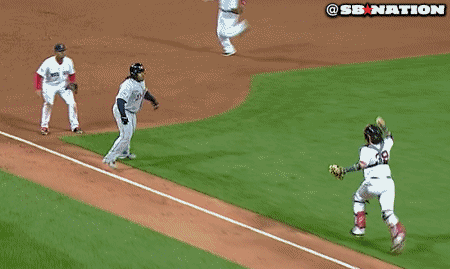Crossing over sports for a moment:
There was a study done on
NBA free throw shooting in the last minutes of close games. They took all free throws taken in the last minute of close games over three seasons, and found that the shooters' FT% varied quite a bit as a function of the lead: (right column is the difference between player's FT% in that situation and his career average)
-5 points: -3%
-4 points: -1%
-3 points: -1%
-2 points: -5%
-1 points: -7%
+0 points: +2%
+1 points: -5%
+2 points: +0%
+3 points: -1%
+4 points: +1%
+5 points: -1%
Now for the cases where the player's team is down, you could probably explain away part of the dip in FT% by citing fatigue. But why the sharp dip at a 2-point or 1-point deficit, then the spike in a tie game, then another dip at a 1-point lead? It seems very plausible that in a tie game, players perceive themselves in a freerolling situation, whereas with a 2 or 1 point deficit, they feel pressure to tie the game or take the lead, and with a 1 point lead they feel pressure not to blow the opportunity and allow the other team to take the lead. It's not a particularly rational train of thought for players to follow, but it seems very plausible that they might do this.


 )
)

